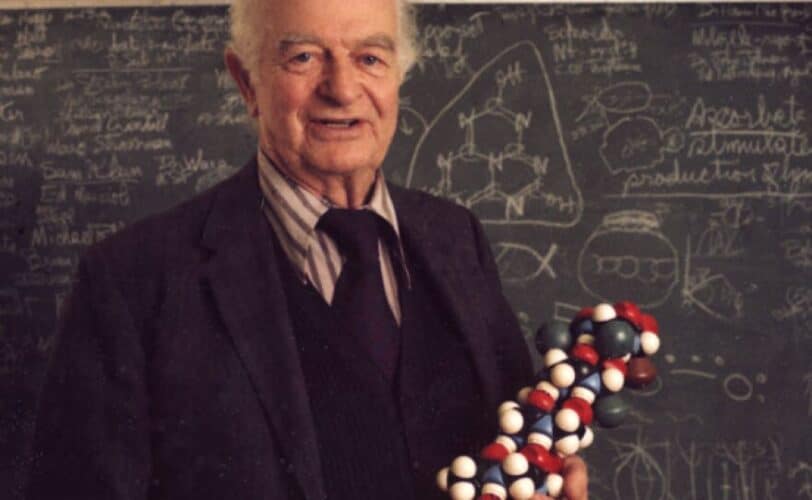Linus Pauling: The Maverick of Modern Science

Linus Pauling (28 February 1901– 19 August 1994) was an American chemist, biochemist, and peace activist. In 1954, Linus Pauling was awarded the Nobel Prize in Chemistry.
Life and Career
Linus Pauling was born on 28 February 1901, in Portland, Oregon, United States. He is one of the most influential scientists of the 20th century and made significant contributions to various fields of science.
Pauling received his bachelor’s degree in chemical engineering from Oregon State University in 1922 and later earned a Ph.D. in chemistry from the California Institute of Technology (Caltech) in 1925. He went on to work at Caltech as a faculty member, where he conducted groundbreaking research in various areas of chemistry, including quantum mechanics and molecular biology.
Pauling is known for his work on the nature of the chemical bond, which earned him the Nobel Prize in Chemistry in 1954. Linus Pauling passed away on 19 August 1994, at the age of 93.
Award and Legacy
He was awarded the Nobel Prize in Chemistry (1954) for his research on the nature of the chemical bond and its application to the elucidation of the structure of complex substances. Nobel Peace Prize (1962) for his efforts in campaigning against nuclear weapons testing and advocating for nuclear disarmament.
His legacy extends across various scientific disciplines, including chemistry, biochemistry, and peace activism. He made significant contributions to our understanding of the fundamental nature of molecules and the structure of complex biological systems.
Observer Voice is the one stop site for National, International news, Sports, Editor’s Choice, Art/culture contents, Quotes and much more. We also cover historical contents. Historical contents includes World History, Indian History, and what happened today. The website also covers Entertainment across the India and World.

